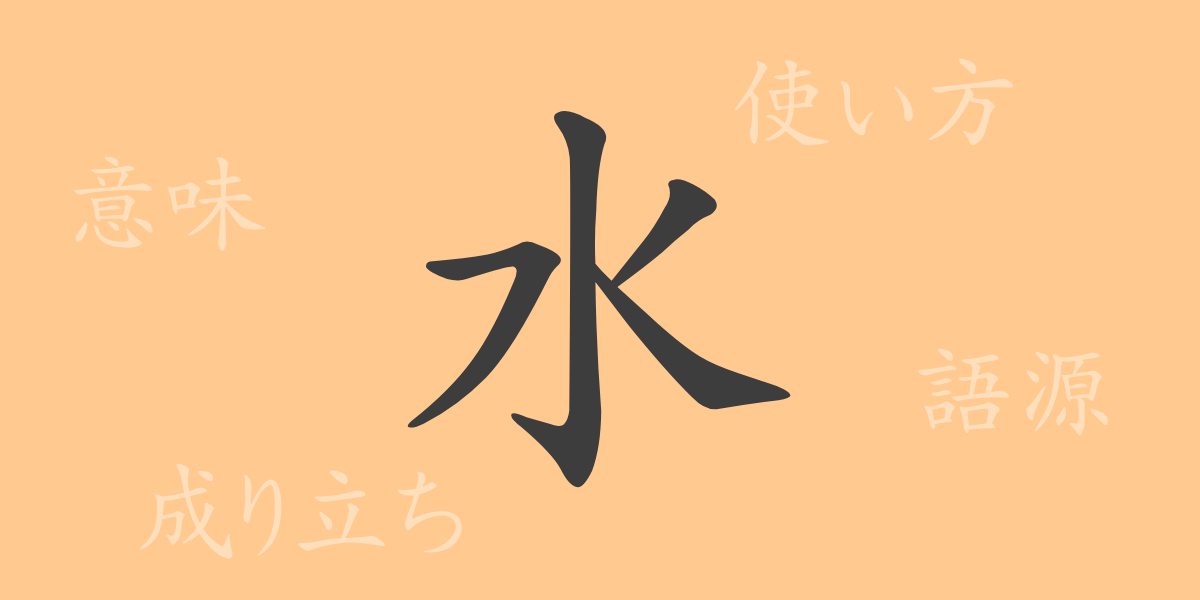Every time we encounter the character ‘水’ (みず), we are reminded of its universality and critical importance to life. This single droplet of clear liquid has been deeply integrated into human lives since ancient times, significantly influencing Japanese culture and language. This article explores the hidden history, meanings, and the phrases and idioms embedded in the minds of the Japanese that involve the commonly used kanji ‘水’.
Origins of 水 (みず)
The kanji ‘水’ originated from ancient Chinese pictographs, initially representing falling droplets or waves, and has evolved over time into the current character for ‘water’. As the source of life, water was also an element in ancient Chinese philosophy, representing life and the natural order of the universe beyond just a mere substance.
Meaning and Usage of 水
While ‘水’ primarily denotes the liquid substance, it also extends to various usages. For instance, ‘水準’ (すいじゅん) refers to a certain standard or level, and ‘水増し’ (みずまし) means to unjustly increase quantity or value. ‘水面下’ (すいめんか) negotiations, which occur behind the scenes, illustrate the richness of the Japanese language.
Readings, Stroke Count, and Radical of 水
‘水’ is one of the fundamental kanji learned early in Japanese education.
- Readings: On’yomi ‘スイ’, Kun’yomi ‘みず’
- Stroke Count: 4 strokes
- Radical: ‘水’ itself serves as its radical, known as ‘さんずい’.
Phrases, Idioms, and Proverbs Using 水
There are numerous phrases and proverbs involving ‘水’ in Japanese, each reflecting deep meanings. ‘水に流す’ (みずにながす) means to forgive and forget past grievances, while ‘水の泡’ (みずのあわ) represents efforts coming to naught. ‘水を差す’ (みずをさす) describes putting a damper on the mood, and the proverb ‘出る杭は打たれる’ (でるくいはうたれる) indicates that standing out can lead to criticism.
Conclusion on 水
The kanji ‘水’, despite its simple form, carries a wealth of meanings and usages. As an indispensable element of life and a pivotal component of communication, water shapes our expressions in profound ways. Through this article, we hope you have gained insight into the depth of ‘水’ and its significant impact on the Japanese psyche.

























